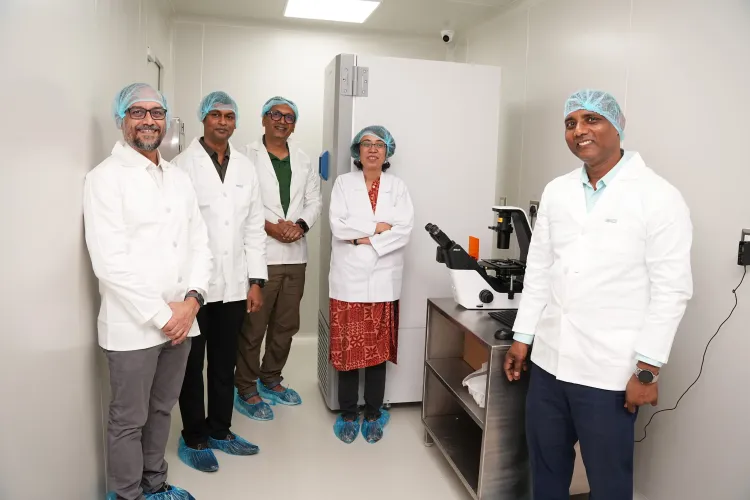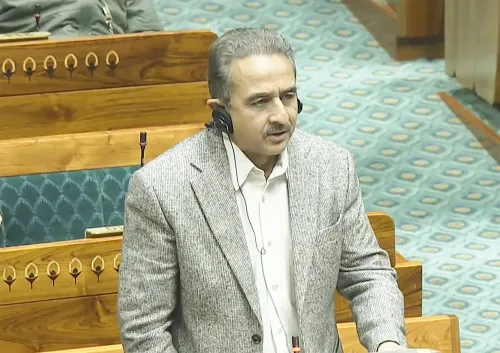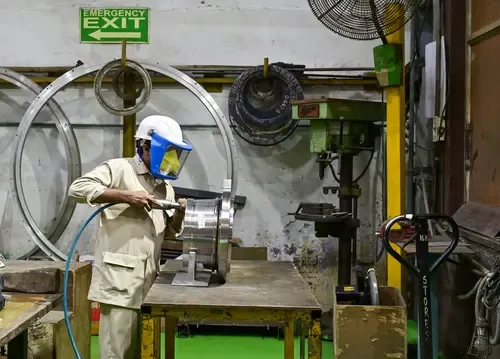How is IIT Delhi's New BSL3 Lab Transforming Infectious Disease Research?

Synopsis
Key Takeaways
- IIT Delhi's BSL3 lab is a first-of-its-kind facility in India.
- It allows direct testing of diagnostic devices for class-3 pathogens.
- Startups and MSMEs can prototype quickly without heavy investments.
- The facility supports collaboration between academia and industry.
- This initiative enhances India's biomedical research capabilities.
New Delhi, Aug 20 (NationPress) In an effort to transform the landscape of biomedical and clinical diagnostics research, the Indian Institute of Technology (IIT) Delhi has officially launched a state-of-the-art Biosafety Level 3 (BSL3) laboratory.
This pioneering facility will enhance research focused on diagnostic devices and therapeutics for class-3 pathogens, establishing a first-of-its-kind initiative among premier educational institutions in India.
This milestone signifies a significant advancement in India's biomedical research capabilities and underscores IIT Delhi's dedication to fostering innovation in healthcare technology.
“This revolutionary research and testing hub will empower innovation in medical diagnostics and therapeutics while supporting IIT Delhi's mission to serve both academia and industry in healthcare research. It will unite scientists and engineers on a collaborative platform to pursue groundbreaking research, paving the way for numerous research partnerships with medical institutions in NCR and beyond,” stated Prof. Arvind Nema, Deputy Director (Operations), IIT Delhi.
The newly established research facility is situated within the Micromodel Complex on the campus under IIT Delhi's Central Research Facility (CRF). It will be accessible to researchers from both academia and industry on a fee basis, adhering to CRF guidelines for short- to medium-term usage with assistance.
The BSL3 lab is poised to significantly benefit startups and MSMEs, allowing them to bring their hardware and personnel into the facility for rapid prototyping without the burden of investing in such specialized environments.
“We are excited to introduce a new facet to the medical diagnostics ecosystem at IIT Delhi. Unlike other BSL3 facilities in India, users can now bring their medical devices into this lab and test them under the guidance of trained professionals experienced in handling class-3 pathogens. This will enable hardware and software engineers to debug and refine their diagnostic platforms within the facility,” remarked Prof. Sandeep K. Jha from the Centre for Biomedical Engineering, who oversees the facility.
“This kind of assisted entry has never been available in the country before, making it challenging for device developers to rapidly address and enhance device efficacy,” added Prof. Ashok K. Patel from the Kusuma School of Biological Sciences at IIT Delhi, who co-led this initiative.










